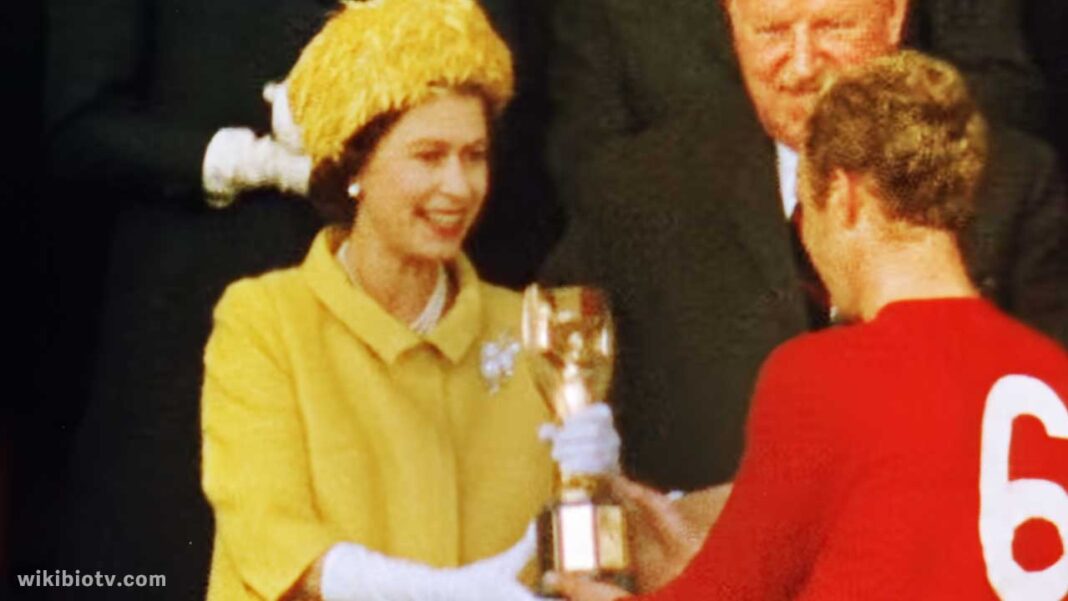
To my fellow English Football Fans: Netflix delivers with their latest documentary, The Final: Attack on Wembley. It was the first time that England had reached the Euro finals for 55 years, and the fans were understandably delighted. Hungering for a win, on 11 July 2021 fans started gathering outside London’s Wembley Stadium for the final game versus Italy: England seemed poised to make history. The fans had hoped that, for once, England would win the cup and take it home with them. However, things took an ugly turn and soon the celebration turned into carnage at the Wembley stadium. Filmmakers Robert Miller and Kwabena Oppong, bring you the ultimate footage and exclusive interviews from the Wembley attack in their latest documentary. If you are a football fan, then this one is definitely worth watching!
The Story
This documentary follows one of the tragic events in England’s history. England stood against Italy during the Euro Finals on July 11, 2021 at the Wembley Stadium in London. People were thrilled to see the historic win. It was in 1966 that England won the World Cup, setting up higher standards among their fans.
But as England supporters arrived at Wembley from around the nation, ecstatic scenes of alcohol and drug-fuelled frantic carousel spilled over into chaos as thousands of un-ticketed fans forced their way into the stadium, endangering lives of the people present at the venue.
It features first-hand testimony from a variety of people who were present at the stadium during the Euro Finals 2020 in London. Overall 2000 people attempted to enter the Wembley Stadium, out of which 400 were expelled. At least 19 police officials were injured and 18 were arrested for creating mayhem at the stadium.
One of the fans recalls how a massive crowd gathered outside the stadium around 10.30 am. He said that the celebrations resembled a big street party. According to Chris Whyte, Director of operations, Brent Council, people were drinking heavily ahead of the finale. His major concern was that the ticketless fans reached the entrance of the stadium, and that if more people would turn up they would be needing much tighter security in the area.
On the other hand, the documentary also depicted the repercussions of England’s loss. It showed how the three players of the England team including Marcus Rashford, Jadon Sancho, and Bukayo Saka became victims of racist attacks for missing penalty kicks.
Also read:
- “Maxton Hall: The World Between Us” Review: Romance Between A Scholarship Student And A Rich Heir
- “Mother Of The Bride” Movie Review: Brooke Shields Plays The Mother In A Predictable Wedding Rom-Com
Actors Performances
Speaking about the cast, the members of the England National Football Team and Italy National Football Team are the real heroes in the film. The nail-biting documentary includes testimonies from fans, attendees, journalists, players and security officials as they share their excitement and harrowing experiences at the Euro finals. It also includes insights from the fans who were part of the ruckus created during the event.
Direction and Technical Aspects
‘The Final: Attack on Wembley’ has a suspenseful yet descriptive story that is highly engaging thanks to insightful interviews from the fans and witnesses to the Wembley attack. Directors Robert Miller and Kwabena Oppong have done an excellent job by collecting the exclusive footage from the castastrophic Wembley attack. Outstanding camerawork as it shows a massive sea of ticketless fans storming towards the stadium. They cleverly captured aggressive behaviors of the fans, people being injured. Such scenes are evident of the technical and practical challenges faced by the directors while shooting the epic documentary.
When it comes to editing, the screenshots from X(formerly Twitter) takes the cake. The tweets from people who tweeted about the latest happenings at the stadium makes it more riveting.
Cinematography also played a major role. The documentary highlights the meticulous planning and execution of the film’s chaotic sequences that showcases the collaboration between the director and the cinematographer. The eerie and suspenseful soundtrack builds up the excitement. The sound designer has experimented with a variety of music to enhance the visual appeal of the film.
Audience Appeal
The Final: Attack on Wembley is not just another documentary with a gripping plot and state-of-the-art cinematography. It goes beyond that, promising an experience that will have you shuddering on the edge of your seat throughout its runtime. This is a documentary meant for sports enthusiasts, and indeed, watching it should be non-negotiable if you fall into this category. The focus on individual narratives injects a perfect blend of personal and universal dimensions into the storyline. It lure viewers to connect at a more profound level. In turn, this doesn’t just widen our perspective about such narratives but also triggers unexplained emotions within us. It might help us see some things in our own personal life differently too: maybe there’s someone we haven’t been empathetic enough towards or some situation we’ve misjudged. Letting these feelings wash over us is what makes the appeal of this documentary broad yet strikingly profound: hence making it unsuitable only for children under 18 due to violence and abusive language. After all, it would be unfortunate for them to miss out on these powerful emotions just because they couldn’t understand the context in which they were being triggered with maturity!
The movie manages to have a strong and engaging impact on the audience: it has documented specific shocking details of racism faced by players and other people involved in the 2020 Euros final match.
Final Thoughts
The documentary does not address the root cause of the Wembley Stadium flare-up apart from portraying it as an expression of frustration towards Covid-19 restrictions. The security officials are praised for their efforts in managing the crowd but no acknowledgement is made regarding the negligent management. In failing to rein in the disorder resulting from non-ticketed supporters, the situation raises more questions on Wembley security. Nevertheless, the documentary succeeds in presenting a gripping story through raw narratives and impassioned testimonies by fans and security officers— an account that captivates its audience even further.
Belonging to Asia myself, the issue of color-based discrimination hits a chord very close to home. One of the most bone-chilling accounts comes from a British-Asian England supporter who admits that his fear when Saka missed the penalty was not so much about the outcome of the game but rather about the wave of hate it would attract. The instance of Taz, a Pakistani security personnel, being targeted along with the players paints an emotionally harrowing picture. The act of defacing Marcus Rashford’s mural post-match loss felt nothing short of soul-crushing. This documentary encapsulates how fans turned their heroes into villains over just one game. In conclusion, The Final: Attack on Wembley might be worth a single watch and is presently available for streaming on Netflix— this sums up its value in simple words.





